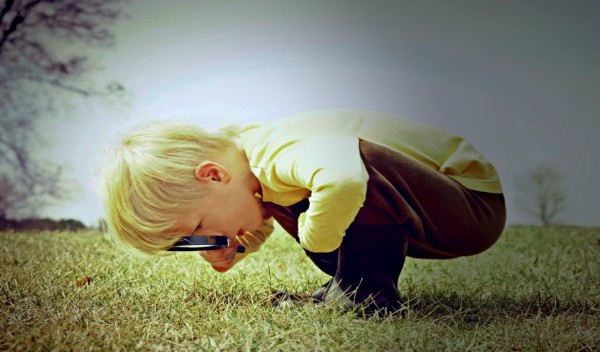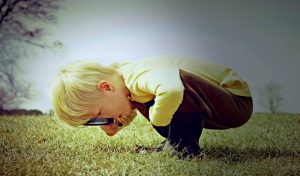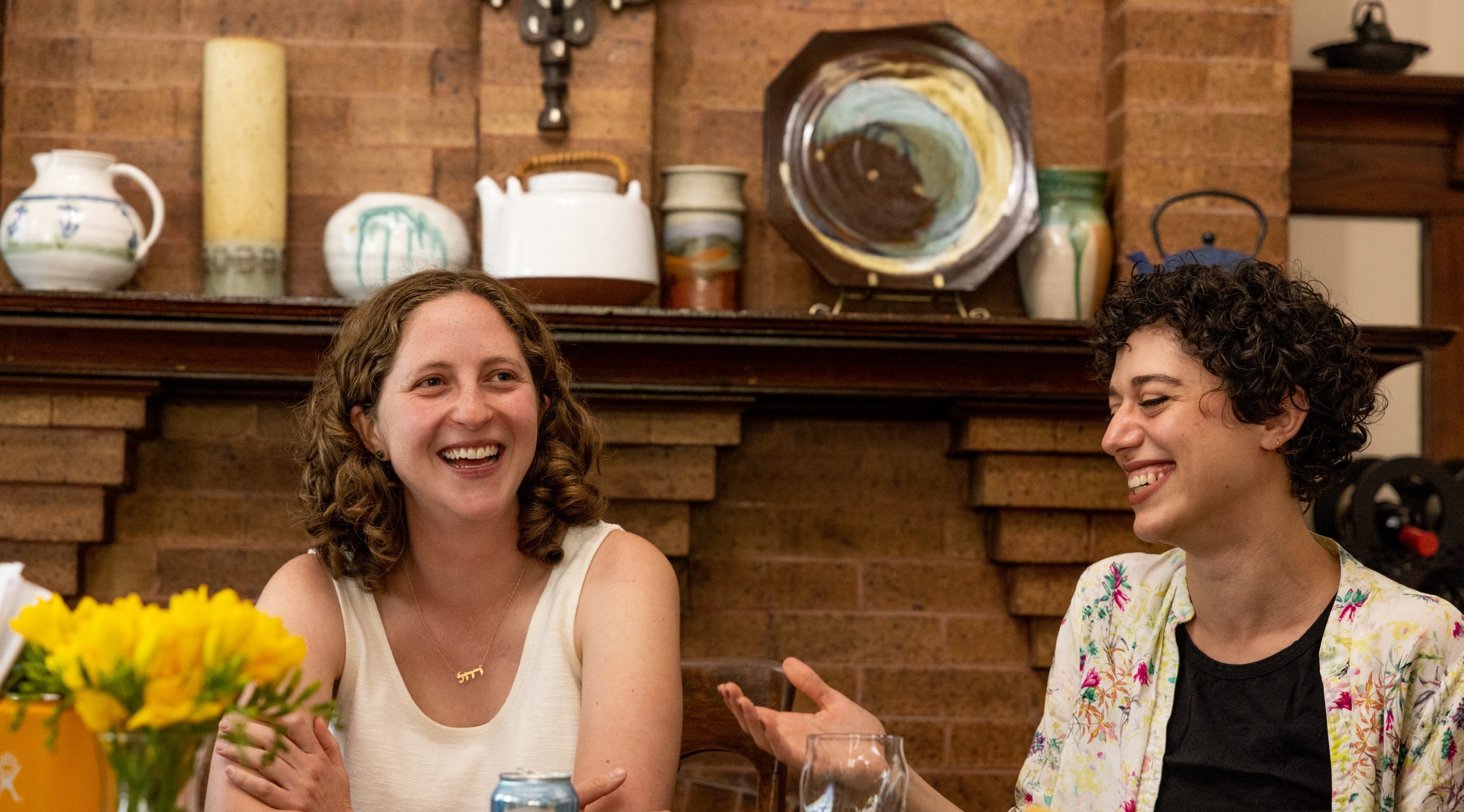
Jul 13, 2018 | by Rabbi Lisa Goldstein, Former Executive Director, Institute for Jewish Spirituality
 Sometimes hitlamdut, cultivating a lens of openness and curiosity, is simple and inspiring. It is reawakening a childlike wonder that brings joy and gratitude and a sense of belonging to this life.
Sometimes hitlamdut, cultivating a lens of openness and curiosity, is simple and inspiring. It is reawakening a childlike wonder that brings joy and gratitude and a sense of belonging to this life.
That is not my experience these days. These days I am keenly aware of the voice inside that says, “We’ve seen this before and we know how it is going to unfold.” This voice looks back at history, at other times and countries, noticing patterns and predicting the future. It is rooted in the fear born of the real trauma of past generations. It is also rooted in the knowing that these things do indeed happen to other people in other places; why shouldn’t they happen to us, too? Childlike wonder seems impossibly naive and perhaps even foolish.
And yet. These days are exactly the context in which to bring the wisdom of hitlamdut, that embodied, fully engaged curiosity. What happens, for example, when I start paying attention to the sensation in the body? First I notice that I am irritated and uncomfortable. My breath is short. I feel pulsing in my face. That is actually interesting! What is that exactly? Then I become aware, oh, I am afraid. Now I can explore, what is fear like? I can bring a softness to the fear so that I can move towards responding to it, not being controlled by it.
To be clear, the goal of this practice is not to create a log for myself of what the experience of fear is like in my body. The goal is to develop my ability for hitlamdut like a muscle. Because the reality is that that fearful voice that says we know what is going to happen next is not a truthful voice. We don’t in fact know. That is worth remembering and practicing, because as Rebecca Solnit recently wrote, “Hope locates itself in the premises that we don’t know what will happen and that in the spaciousness of uncertainty is room to act.”
There is a great deal we cannot control in our world, and yet, we can still act. We can develop our capacity to see things with openness and curiosity, for hitlamdut. We can bring compassion to our own experience and connect with others’ experiences as well. We can discern what communal and political arenas we can step into and what steps we can take. Because this moment has never existed before and there is so much to do.
Sep 14, 2012 | by Rabbi Lisa Goldstein, Former Executive Director, Institute for Jewish Spirituality
Elul is coming to an end with the grandeur and mystery of the High Holy Days about to begin. In New York the weather shifted this week too; the sun is still warm, but the wind is fresh and even chilly, signs of colder days approaching.
Last week I mentioned the new building that is being constructed outside our windows. I have been watching the workers, climbing, moving and hammering, seemingly without a care, on the drop-off edge of a concrete slab 20 stories above the street. As I write, one man in a neon green vest is clinging to the outside of a plywood ladder, nothing underneath him but a net two floors below, whacking at something with a tool. He is clipped on with a harness, but from here, it looks pretty terrifying.
Fear. I remember studying once with Gabe Goldman, a naturalist and Jewish educator. He told of having led a hands-on workshop about how to handle very, very sharp knives, so sharp that you wouldn’t even feel it if you cut off your finger. He taught his students how to hold them, work with them, and respect them. He then followed the workshop with a lesson about yirah, “fearing” or being “in awe” of God.
After the sweet, mellow days of Elul, these High Holy Days, Days of Awe, give us a glimpse of something stronger and a little more fearful. They encourage us to consider the mystery of the unknown days ahead, days that may hold great blessings and great suffering, and probably a little of both. They give us the forum to come face to face with our limits and the reality of our mortality. They challenge us to confront our own vulnerability in the face of the colder days that are coming.
But, like the men outside who are building a new building, a structure that will provide shelter for hundreds of people and stand witness to their labors for many years, the High Holy Days also give us the opportunity to take satisfaction in the work of our hands and to find joy in living this life, in company with fellow travelers, step by dangerous step, even when we feel we are dangling over the abyss.
May 5773 bring all of us more blessings than suffering, more expansiveness than constriction, more peace than conflict, and more joy than sorrow. May our practices give us tools for wisdom, gratitude and compassion. And may we find good companions (or a good Companion) for the journey who can support us with courage, love and guidance.

 Sometimes hitlamdut, cultivating a lens of openness and curiosity, is simple and inspiring. It is reawakening a childlike wonder that brings joy and gratitude and a sense of belonging to this life.
Sometimes hitlamdut, cultivating a lens of openness and curiosity, is simple and inspiring. It is reawakening a childlike wonder that brings joy and gratitude and a sense of belonging to this life.
